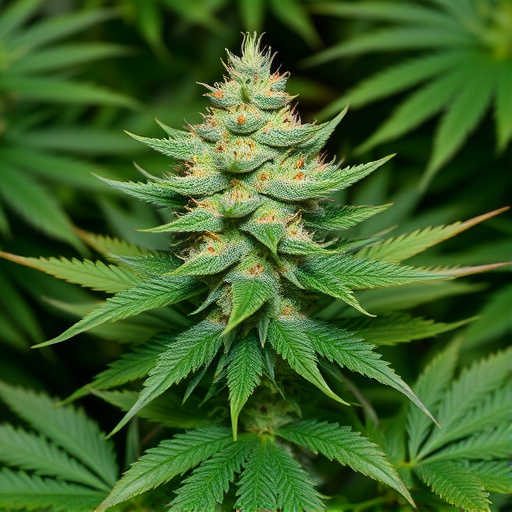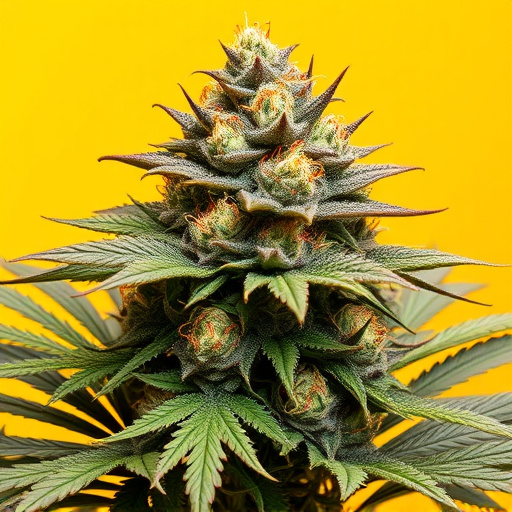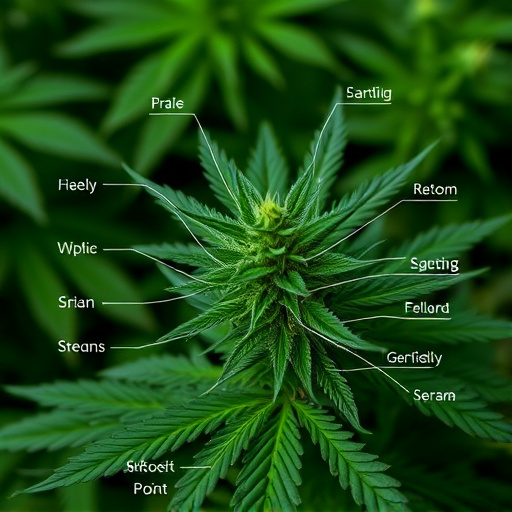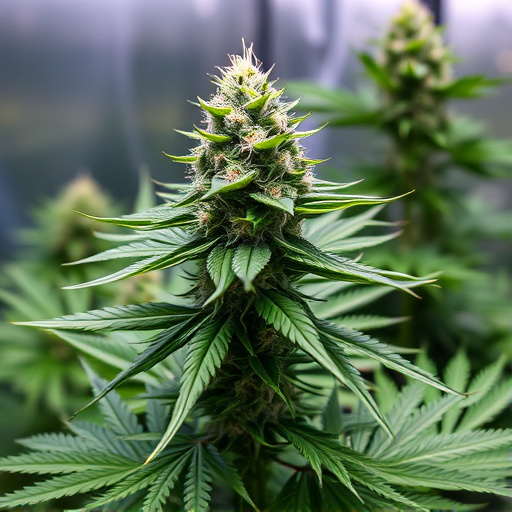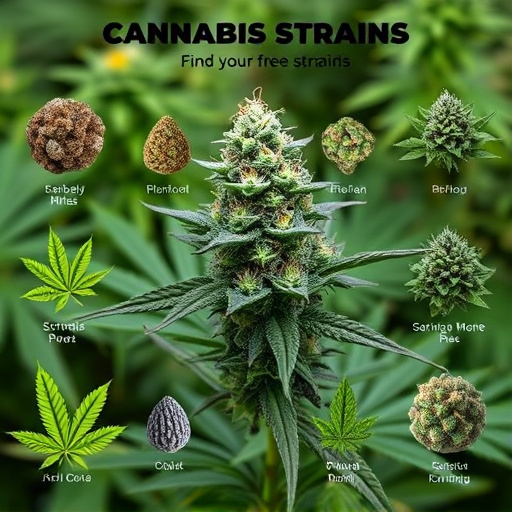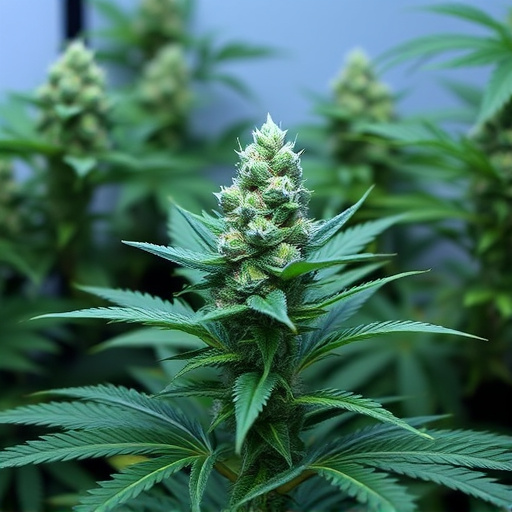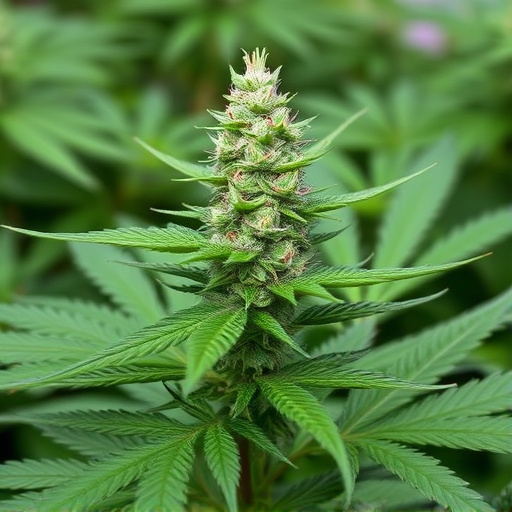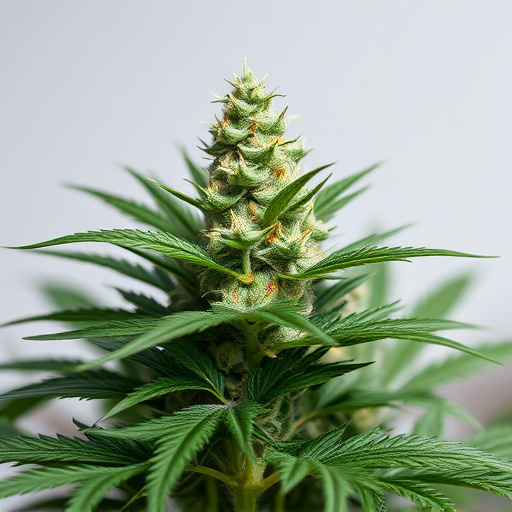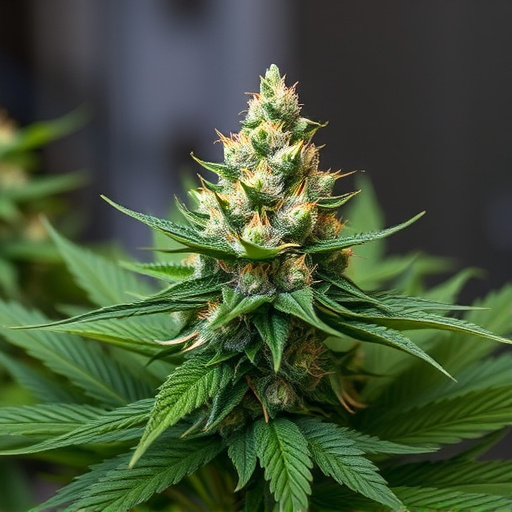Terpenes, the aromatic oils in cannabis, play a key role in the therapeutic effects of different strains, particularly for managing PTSD. With over 100 known terpenes, each with unique properties, understanding them is vital for those seeking PTSD relief. Myrcene, for example, offers soothing and sedative effects, aiding anxiety management. Exploring cannabis strains with specific terpene profiles, especially high myrcene content balanced with moderate THC and CBD levels, could provide a promising approach to treating PTSD. Cannabis strains for PTSD are gaining traction in the medical community as a potential alternative treatment option.
“Unraveling the complex world of terpenes reveals a fascinating aspect of cannabis’s therapeutic potential, especially in managing PTSD. These aromatic chemical compounds, responsible for the distinctive scents and flavors of cannabis strains, play a pivotal role in its effects on mental health. From understanding the basics of terpenes to exploring their specific benefits for PTSD, this article delves into the science behind these natural cannabinoids, offering insights that could revolutionize cannabis-based treatments.”
- Understanding Terpenes: The Chemical Compounds in Cannabis
- Terpenes and Cannabis Strains for PTSD: A Match Made in Heaven?
- Unveiling the Science Behind Terpenes' Impact on Mental Health
Understanding Terpenes: The Chemical Compounds in Cannabis
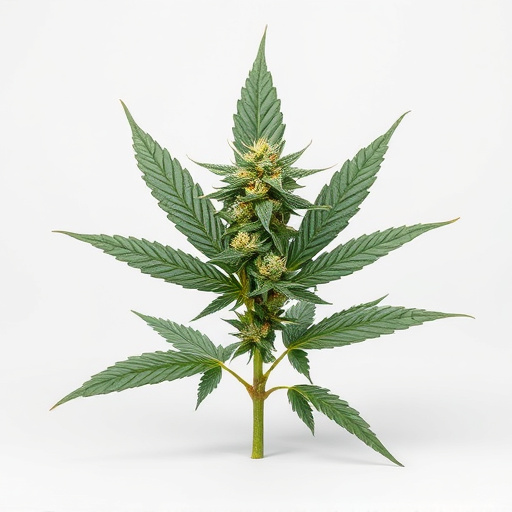
Terpenes, often referred to as the ‘essential oils’ of cannabis, are a diverse group of chemical compounds that contribute significantly to the unique effects and aroma of different cannabis strains. They play a pivotal role in shaping the sensory experience and therapeutic potential of cannabis, especially when it comes to specific conditions like post-traumatic stress disorder (PTSD). With over 100 known terpenes identified in cannabis plants, each offering distinct properties, understanding these compounds is essential for those seeking relief from PTSD symptoms.
The aromatic profiles of cannabis strains are primarily attributed to terpenes, which not only give them their characteristic scents but also interact with the plant’s cannabinoids, such as THC and CBD. For instance, myrcene, a common terpene in many cannabis strains, is known for its soothing and sedative effects, making it potentially beneficial for managing anxiety and promoting relaxation—aspects that could be particularly appealing to individuals with PTSD looking for natural coping mechanisms. Exploring the right cannabis strains with specific terpene profiles can be a game-changer for PTSD patients seeking alternative treatment options.
Terpenes and Cannabis Strains for PTSD: A Match Made in Heaven?
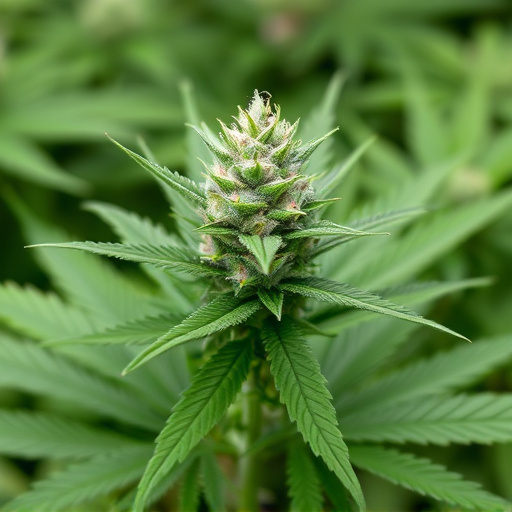
Terpenes, the aromatic compounds found in many plants, including cannabis, have garnered significant interest in the medical community for their potential therapeutic benefits. When it comes to treating Post-Traumatic Stress Disorder (PTSD), certain terpenes present in specific cannabis strains are believed to offer promising effects. For instance, myrcene, a common terpene in cannabis, has been linked to stress and anxiety relief, making it a potential candidate for managing PTSD symptoms.
The right cannabis strain for PTSD could be a combination of high terpene content and specific cannabinoid profiles. Some studies suggest that strains rich in myrcene, combined with moderate levels of THC and CBD, may provide a soothing effect while minimizing any potent psychoactive experiences. This balance is crucial as it allows individuals with PTSD to potentially find relief without exacerbating anxiety or triggering traumatic memories.
Unveiling the Science Behind Terpenes' Impact on Mental Health

Terpenes, organic compounds responsible for the distinctive aromas and flavors in cannabis, have gained significant interest for their potential impact on mental health. Research suggests that specific terpenes present in various cannabis strains can interact with the endocannabinoid system (ECS), which plays a crucial role in regulating mood, stress, and anxiety. This interaction may offer therapeutic benefits, particularly for conditions like post-traumatic stress disorder (PTSD).
For instance, linalool, a common terpene found in many cannabis strains, is known for its calming effects. Studies have shown that inhaling linalool can reduce stress hormones and improve sleep quality, making it a potential aid for individuals dealing with PTSD symptoms. Similarly, myrcene has been linked to pain relief and anti-inflammatory properties, which could alleviate physical symptoms often associated with PTSD. As the scientific community continues to explore terpenes’ complex relationship with mental health, cannabis strains specifically tailored to address PTSD are becoming increasingly popular.
Terpenes, as key chemical compounds within cannabis, significantly influence the plant’s effects, including its potential to alleviate symptoms of PTSD. Research suggests that specific terpenes found in certain cannabis strains may interact with the endocannabinoid system to promote mental well-being and offer therapeutic benefits for those dealing with PTSD. Further exploration into terpene-cannabinoid interactions is essential to unlock the full potential of cannabis strains for PTSD management, providing hope for effective, natural treatments in the future.

